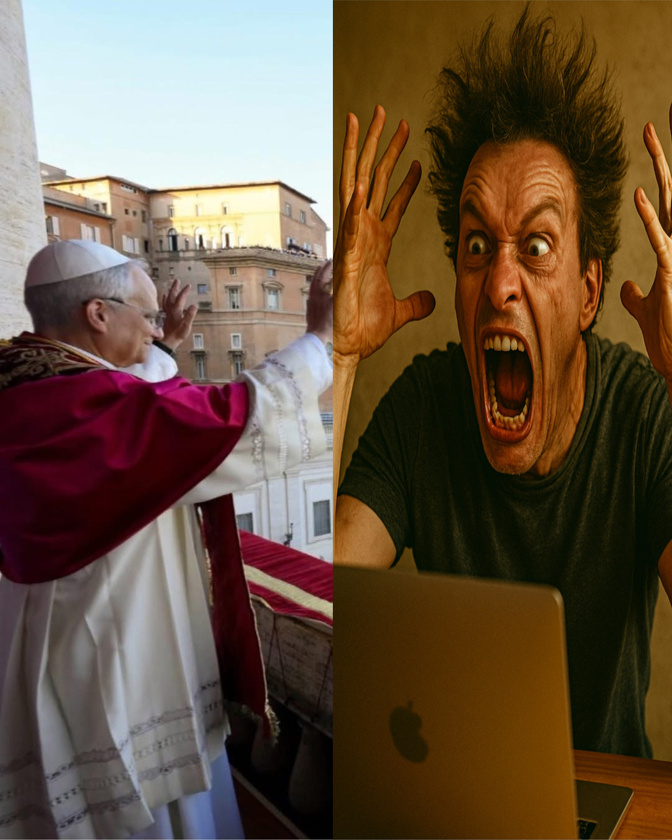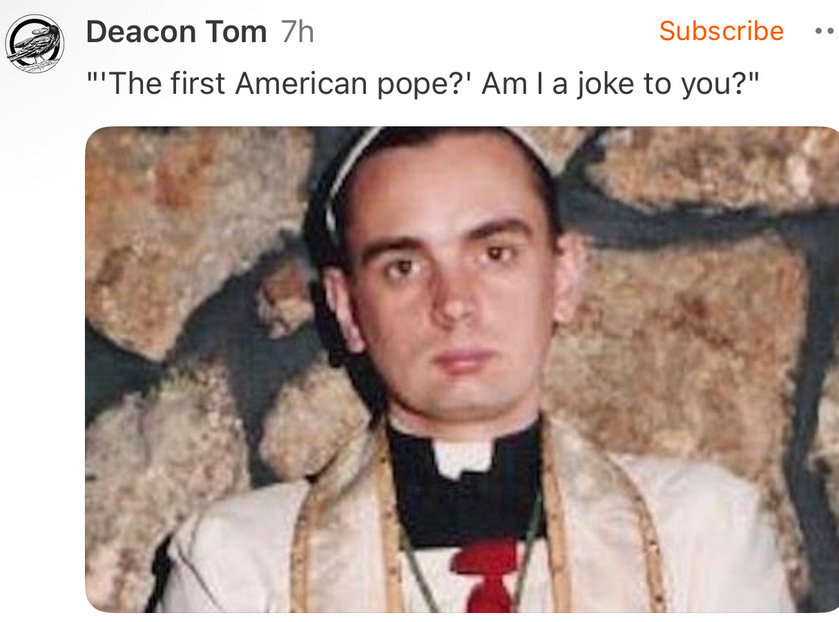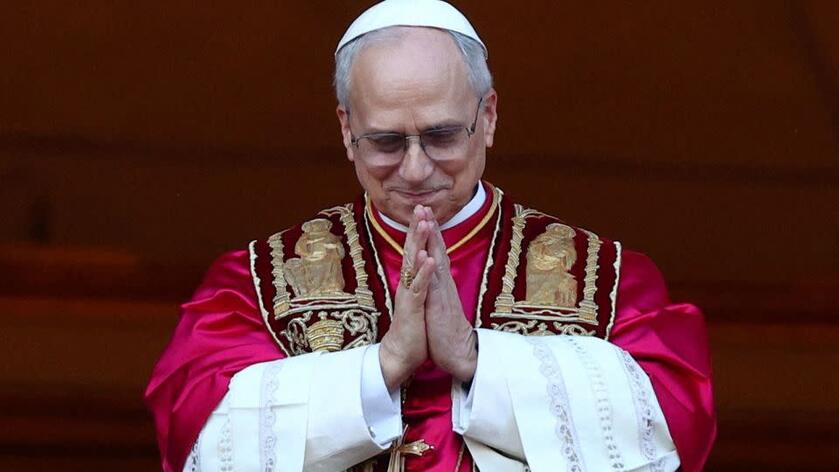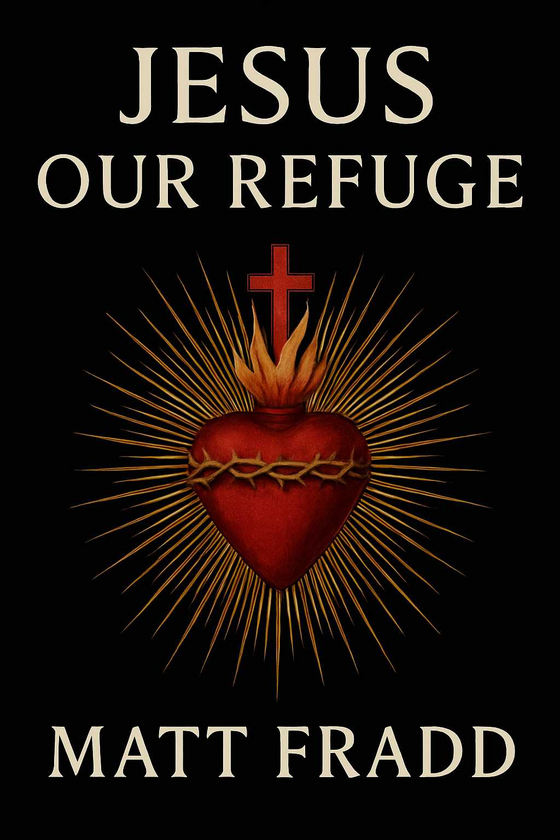Pope Leo XIV delivered this homily during the Missa Pro Ecclesia—his first as Supreme Pontiff—celebrated with the College of Cardinals in the Sistine Chapel on May 9. What a profound grace it is to witness a new pope begin his ministry not with self-reference or strategy, but with a clear and humble proclamation of Jesus Christ. This homily is striking in its simplicity and depth: centered entirely on the Lord, rooted in Scripture and tradition, and radiant with the joy and seriousness of someone who knows he now bears the cross (and keys) of Peter.
I’ll begin with a word in English, then the rest is Italian. But I want to repeat the words from the responsorial psalm: “I will sing a new song to the Lord, because he has done marvels.” And indeed, not just with me, but with all of us, my brother cardinals. As we celebrate this morning, I invite you to recognize the marvels that the Lord has done, the blessings that the Lord continues to pour out upon all of us. Through the ministry of Peter, you have called me to carry that cross and to be blessed with that mission. And I know that I can rely on each and every one of you to walk with me as we continue as a church, as a community of friends of Jesus, as believers, to announce the good news, to announce the Gospel.
“You are the Christ, the Son of the living God” (Mt 16:16). In these words, Peter, asked by the Master, together with the other disciples, about his faith in him, expressed the patrimony that the church, through the apostolic succession, has preserved, deepened and handed on for two thousand years.
Jesus is the Christ, the Son of the living God: the one Saviour, who alone reveals the face of the Father.
In him, God, in order to make himself close and accessible to men and women, revealed himself to us in the trusting eyes of a child, in the lively mind of a young person and in the mature features of a man (cf. “Gaudium et Spes,” No. 22), finally appearing to his disciples after the resurrection with his glorious body. He thus showed us a model of human holiness that we can all imitate, together with the promise of an eternal destiny that transcends all our limits and abilities.
Peter, in his response, understands both of these things: the gift of God and the path to follow in order to allow himself to be changed by that gift. They are two inseparable aspects of salvation entrusted to the church to be proclaimed for the good of the human race. Indeed, they are entrusted to us, who were chosen by him before we were formed in our mothers’ wombs (cf. Jer 1:5), reborn in the waters of Baptism and, surpassing our limitations and with no merit of our own, brought here and sent forth from here, so that the Gospel might be proclaimed to every creature (cf. Mk 16:15).
In a particular way, God has called me by your election to succeed the Prince of the Apostles, and has entrusted this treasure to me so that, with his help, I may be its faithful administrator (cf. 1 Cor 4:2) for the sake of the entire mystical Body of the church. He has done so in order that she may be ever more fully a city set on a hill (cf. Rev 21:10), an ark of salvation sailing through the waters of history and a beacon that illumines the dark nights of this world. And this, not so much through the magnificence of her structures or the grandeur of her buildings – like the monuments among which we find ourselves – but rather through the holiness of her members. For we are the people whom God has chosen as his own, so that we may declare the wonderful deeds of him who called us out of darkness into his marvellous light (cf. 1 Pet 2:9).
Peter, however, makes his profession of faith in reply to a specific question: “Who do people say that the Son of Man is?” (Mt 16:13). The question is not insignificant. It concerns an essential aspect of our ministry, namely, the world in which we live, with its limitations and its potential, its questions and its convictions.
“Who do people say that the Son of Man is?” If we reflect on the scene we are considering, we might find two possible answers, which characterize two different attitudes.
First, there is the world’s response. Matthew tells us that this conversation between Jesus and his disciples takes place in the beautiful town of Caesarea Philippi, filled with luxurious palaces, set in a magnificent natural landscape at the foot of Mount Hermon, but also a place of cruel power plays and the scene of betrayals and infidelity. This setting speaks to us of a world that considers Jesus a completely insignificant person, at best someone with an unusual and striking way of speaking and acting. And so, once his presence becomes irksome because of his demands for honesty and his stern moral requirements, this “world” will not hesitate to reject and eliminate him.
Then there is the other possible response to Jesus’ question: that of ordinary people. For them, the Nazarene is not a charlatan, but an upright man, one who has courage, who speaks well and says the right things, like other great prophets in the history of Israel. That is why they follow him, at least for as long as they can do so without too much risk or inconvenience. Yet to them he is only a man, and therefore, in times of danger, during his passion, they too abandon him and depart disappointed.
What is striking about these two attitudes is their relevance today. They embody notions that we could easily find on the lips of many men and women in our own time, even if, while essentially identical, they are expressed in different languages.
Even today, there are many settings in which the Christian faith is considered absurd, meant for the weak and unintelligent. Settings where other securities are preferred, like technology, money, success, power, or pleasure.
These are contexts where it is not easy to preach the Gospel and bear witness to its truth, where believers are mocked, opposed, despised or at best tolerated and pitied. Yet, precisely for this reason, they are the places where our missionary outreach is desperately needed. A lack of faith is often tragically accompanied by the loss of meaning in life, the neglect of mercy, appalling violations of human dignity, the crisis of the family and so many other wounds that afflict our society. And these are not few.
Today, too, there are many settings in which Jesus, although appreciated as a man, is reduced to a kind of charismatic leader or superman. This is true not only among non-believers but also among many baptized Christians, who thus end up living, at this level, in a state of practical atheism.
This is the world that has been entrusted to us, a world in which, as Pope Francis taught us so many times, we are called to bear witness to our joyful faith in Jesus the Saviour. Therefore, it is essential that we, too, repeat, with Peter: “You are the Christ, the Son of the living God” (Mt 16:16).
It is essential to do this, first of all, in our personal relationship with the Lord, in our commitment to a daily journey of conversion. Then, to do so as a church, experiencing together our fidelity to the Lord and bringing the Good News to all (cf. “Lumen Gentium,” No. 1).
I say this first of all to myself, as the Successor of Peter, as I begin my mission as bishop of Rome and, according to the well-known expression of St. Ignatius of Antioch, am called to preside in charity over the universal church (cf. Letter to the Romans, Prologue). St. Ignatius, who was led in chains to this city, the place of his impending sacrifice, wrote to the Christians there: “Then I will truly be a disciple of Jesus Christ, when the world no longer sees my body” (Letter to the Romans, IV, 1). Ignatius was speaking about being devoured by wild beasts in the arena—and so it happened—but his words apply more generally to an indispensable commitment for all those in the church who exercise a ministry of authority. It is to move aside so that Christ may remain, to make oneself small so that he may be known and glorified (cf. Jn 3:30), to spend oneself to the utmost so that all may have the opportunity to know and love him.
May God grant me this grace, today and always, through the loving intercession of Mary, Mother of the church.



















